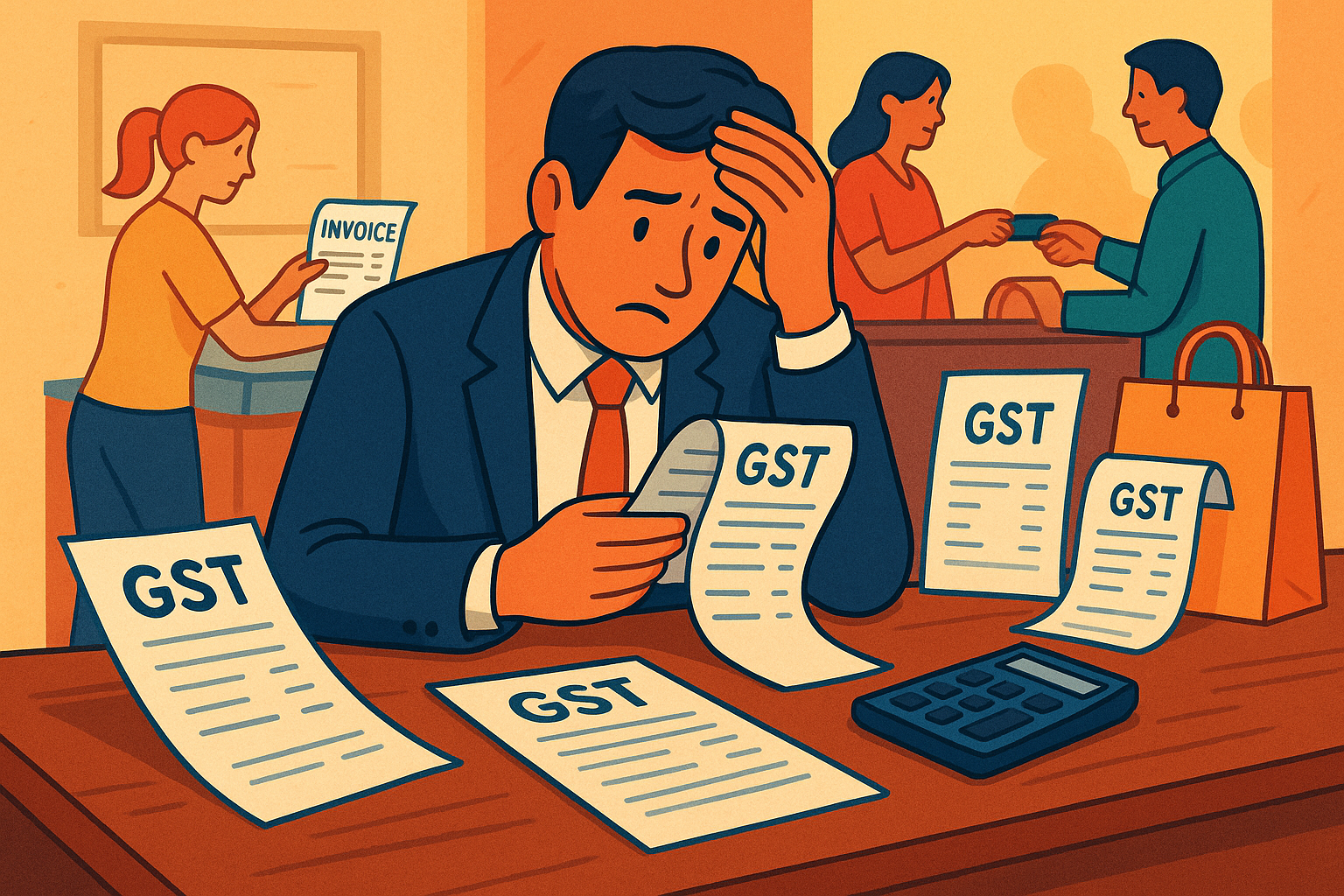Managing GST (Goods and Services Tax) is a challenge for many small business owners. Even a minor error in calculation, filing, or documentation can lead to penalties, compliance issues, and cash flow disruptions. By understanding the most common GST mistakes, you can avoid costly errors and keep your business compliant.
In this article, we’ll explore seven frequent GST mistakes small businesses make and share practical tips to prevent them.
1. Missing GST Registration Deadline
Many small businesses delay registering for GST until they exceed the turnover threshold. This can result in fines and legal trouble.
Tip: Track your turnover closely and register as soon as you’re eligible to avoid late fees.
2. Incorrect GST Rate Application
Applying the wrong GST rate to products or services can cause compliance issues and customer disputes.
Tip: Maintain an updated GST rate list for all your offerings and review it regularly.
3. Failing to Maintain Proper GST Records
Incomplete or disorganized invoices, receipts, and tax documents can make GST filing stressful.
Tip: Use a digital accounting system like ManageKaro to store and track all GST-related documents in one place.
4. Ignoring Input Tax Credit (ITC) Rules
Many businesses fail to claim eligible Input Tax Credit due to missing documents or misunderstanding the rules.
Tip: Keep all purchase invoices and ensure they meet GST compliance requirements.
5. Late GST Filing
Submitting GST returns after the due date results in penalties and interest charges.
Tip: Set reminders for filing deadlines and automate GST return preparation with reliable software.
6. Incorrect HSN or SAC Codes
Using the wrong HSN (Harmonized System of Nomenclature) or SAC (Service Accounting Code) can trigger GST notices.
Tip: Verify the correct codes for your products and services before invoicing.
7. Overlooking GST Reconciliation
Skipping regular GST reconciliation between your books and GST portal data can lead to mismatches and penalties.
Tip: Perform monthly reconciliations to identify and correct errors early.
Final Thoughts
GST compliance is not just about avoiding penalties—it’s about building trust with customers and ensuring smooth financial operations. By steering clear of these common GST mistakes, you can save time, reduce stress, and focus on growing your business.
With ManageKaro, you can automate GST invoicing, track expenses, and file returns seamlessly — ensuring accuracy and peace of mind.



